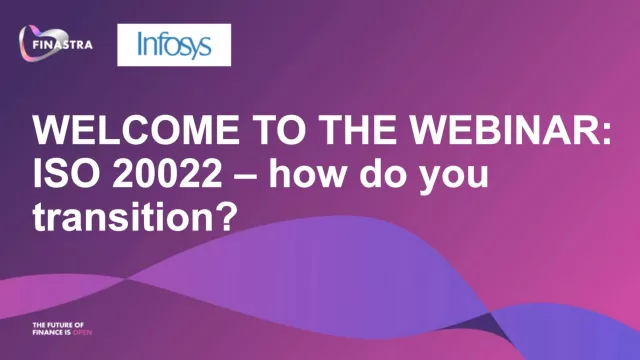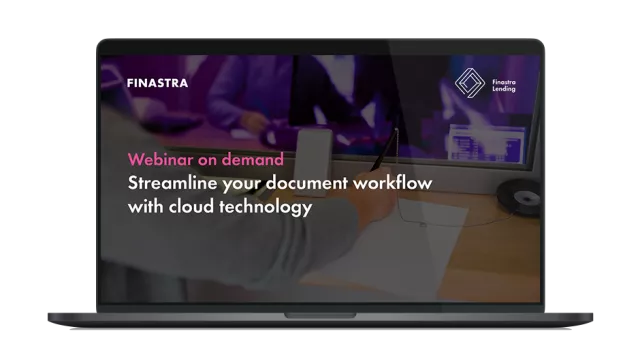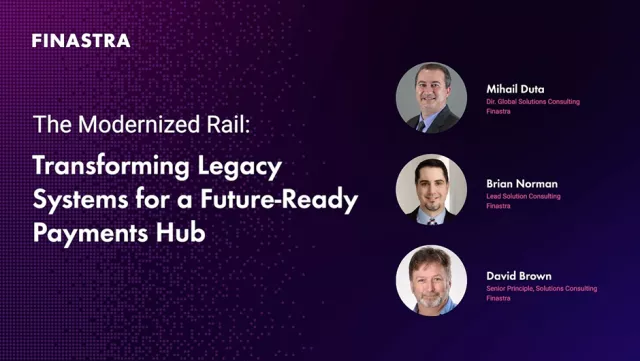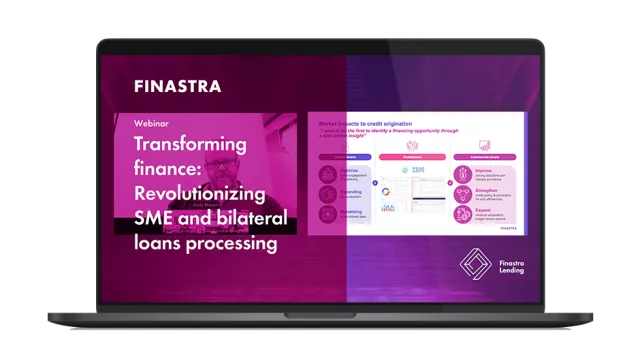The future of payments is ISO 20022 – how will you transition?
The changeover from the legacy FIN MT messaging standard to the data-rich ISO MX messaging standard is a positive step forward for all participants in the payments value chain. It does, however, introduce several complications stemming from the significant differences between the two standards.

Default Finastra
The changeover from the legacy FIN MT messaging standard to the data-rich ISO MX messaging standard is a positive step forward for all participants in the payments value chain. It does, however, introduce several complications stemming from the significant differences between the two standards.
This webinar, where industry experts from banks, SWIFT, Infosys and Finastra will be sharing their experiences and will discuss:
- What are the most significant differences that banks need to be aware of?
- Where are the challenges and opportunities?
- Many clearing system users and operators recognize the benefit of moving away from proprietary formats to a global standard that facilitates interoperability, rich data and increased automation. The approach to adoption varies, with one of two models being taken:
- A one-step, or “big bang”, migration
- A multiple-step, or “like-for-like”, migration (where data fields and messages are gradually moved over)
- Which migration model is best?
- How are the majority of banks approaching this task?
Speakers
Gillian Austin-King
Payments Portfolio Director
HSBC
Harcus Copper
Director – Head of Integration and Information Services, Digital Banking
Barclays
Tom O’Kelly
Associate Partner, Financial Services
Infosys
Paul Thomalla
Global Head of Payments
Finastra
Ryan McAuliffe
Payments Innovation Expert
SWIFT


